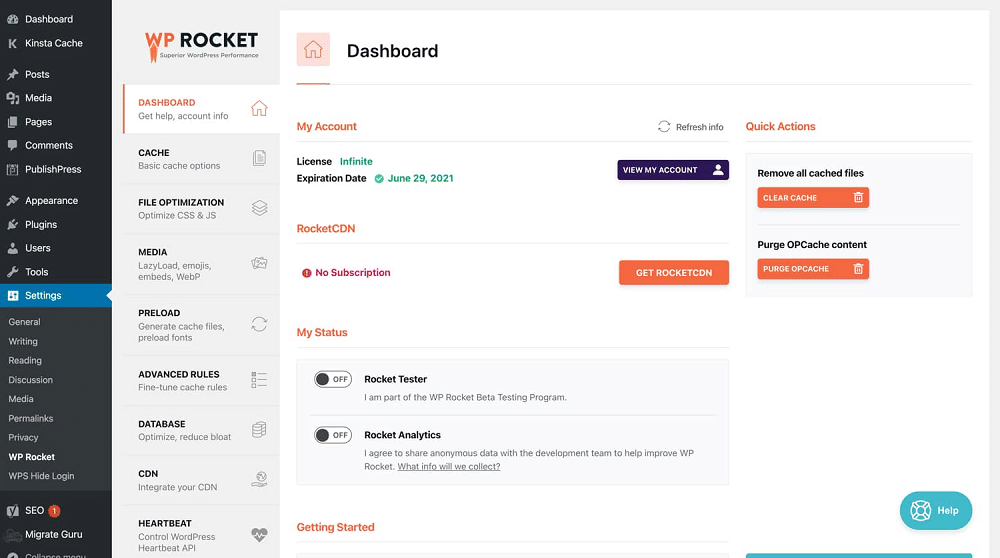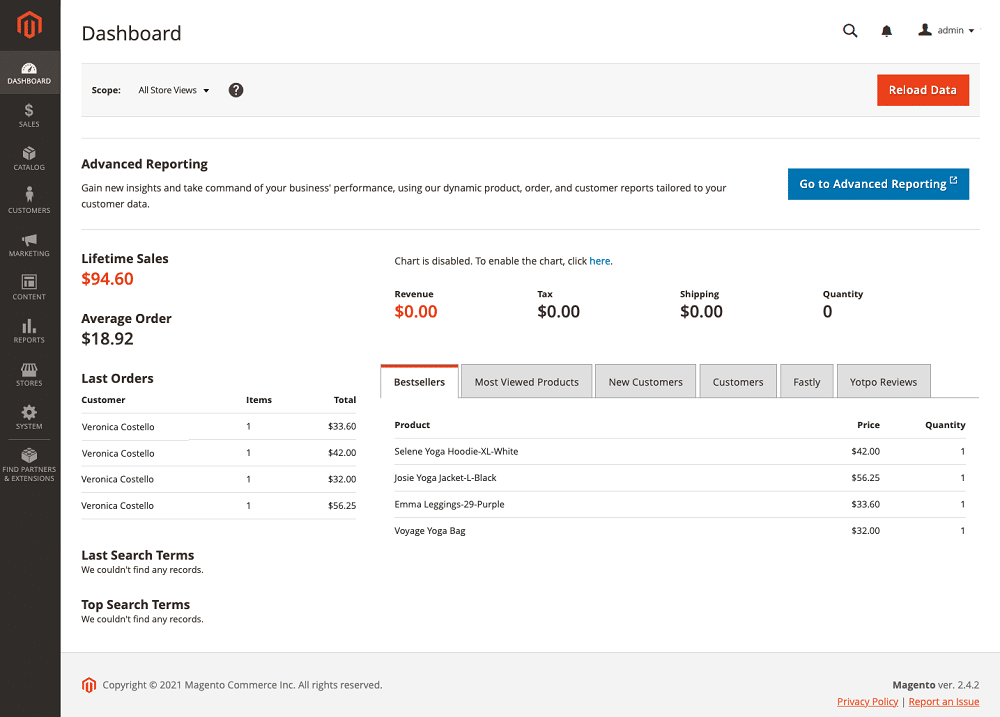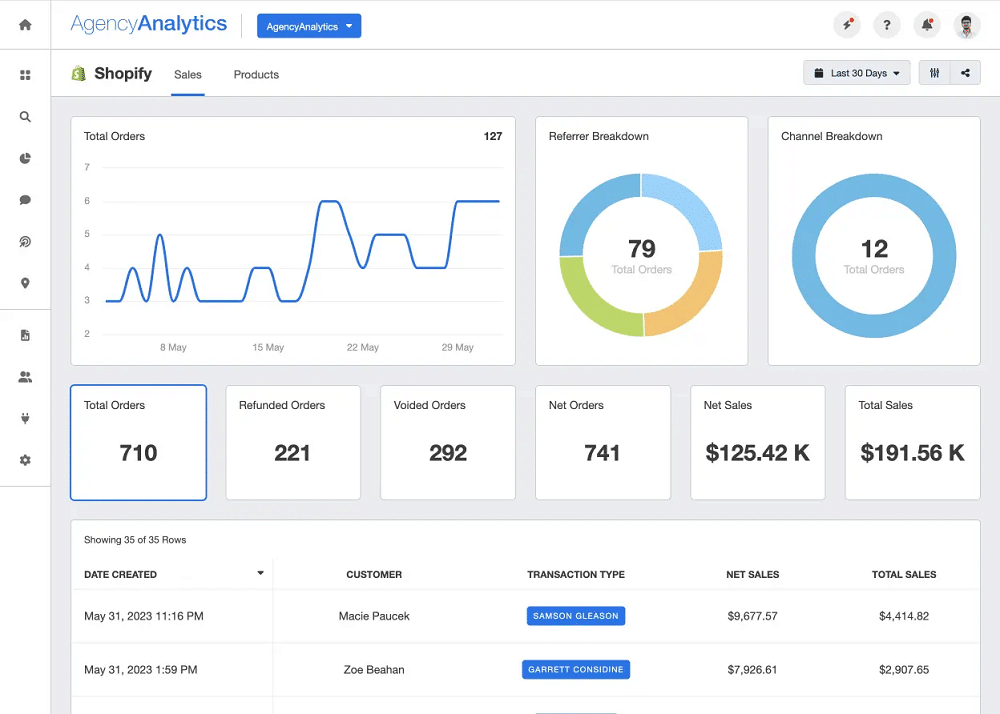
Best CMS for SEO: Comparison, Use Cases, & Statistics
The correct Content Management System (CMS) selection is essential for maximising Search Engine Optimisation (SEO) efforts. Your website’s visibility, rankings, and organic traffic are directly affected by the CMS you use to manage and publish your material.
With an SEO-friendly CMS, you can control essential SEO factors like meta tags, URLs, sitemaps, and site speed optimisation. Long-term success depends on making an informed decision when selecting a CMS that supports your SEO objectives.
In this blog post, we’ll contrast the most widely used CMS systems, look at how well they handle SEO, and back up our statements with use cases and data.
Understanding SEO and CMS
Understanding how SEO and CMS systems relate to one another is essential for optimising the SEO of your website. What you need to know is:
- CMS platforms play a key role in the successful implementation of SEO strategies in all sectors.
- SEO-friendly features: Search for CMS platforms that offer adjustable URLs, meta descriptions, and sitemap production.
- Mobile responsiveness: CMS platforms that are responsive on mobile devices perform better in search engines.
- Content management: Effective content management tools enhance content optimisation and SEO strategies.
- User-friendly interface: Simple CMS interfaces make the deployment of SEO easy.
- Flexibility and customisation are made possible by customisable CMS platforms.
Popular CMS Platforms
Some platforms stand out when choosing the best CMS for SEO because of their features, flexibility, and required knowledge to use. Let’s examine 5 of the most widely used CMS platforms and see how they are used to maximise SEO efforts.
WordPress
WordPress powers nearly 43% of websites worldwide and is renowned for its robust plugin ecosystem. It has SEO-friendly features like sitemap generation, rewriteable URLs, and meta tags that are perfect for small to medium-sized businesses, content creators, and bloggers.
Joomla
Joomla is a strong CMS with cutting-edge SEO features and multilingual support. Joomla provides elements beneficial to SEO, such as rewriteable URLs, meta tags, and responsive mobile design. It is appropriate for community-based websites, public portals, and e-commerce sites.
Drupal
Drupal is a powerful CMS with cutting-edge customisation possibilities and SEO tools. Its features such as caching, meta tags, and customisable URLs are beneficial for SEO. Drupal is ideal for large websites, sophisticated corporate applications, and complex content architectures.
Magento
Intended for eCommerce, Magento features scalability and integrated SEO capabilities. It provides customisable URLs, meta tags, and structured data, perfect for online retailers, merchants, and businesses emphasizing e-commerce.
Shopify
Shopify eCommerce CMS is user-friendly and offers SEO-oriented themes and functionality. It offers mobile adaptability and integrated SEO tools. It’s best for small enterprises, startups, and entrepreneurs looking for an effective e-commerce platform.
Let’s dive deeper into each of these CMSs.
WordPress
The most well-liked CMS for SEO is WordPress which provides a wealth of functionality, plugins, and optimisation abilities to rank your sites. Here are some of the ways it can help your SEO implementation.
SEO features of WordPress
Some built-in features of WordPress that make SEO optimisation easier:
1. SEO-oriented plugins
WordPress offers plugins like YOAST SEO and an All-in-one SEO pack to streamline your content for effective SEO.

2. Responsive themes
WordPress themes are mobile-friendly, assuring optimal performance on all platforms.
3. Speed optimisation
There are several plugins and optimisation methods that improve the loading speed of your websites. Furthermore, WordPress generally has lean code.
4. Permalinks
It lets you create keyword-rich links for your URLs that increase their visibility for SEO.
5. Media management
WordPress offers the easiest and most dynamic content and media management in nearly 70 languages. Besides excellent image optimisation, it also allows smooth various media integrations for wider reach.
5 best WordPress SEO plugins
Thanks to WordPress Coding standards WP has an extensive plugin library which makes it a game-changer for SEO and is probably its standout feature.
1. All-in-One Schema Rich Snippet
This feature-rich plugin helps display images, star reviews, pricing, author details, and more on Google display. It supports WP and AMP with schema and structured data, optimising your sites.

2. Imagify
It is a popular image compression plugin with almost 6 lakh+ installs. This plugin ensures that all your images retain their highest quality while becoming smaller in size through a powerful compression method. Use this plugin in your WordPress website, and load your images a lot faster.

3. Redirection plugin
Many WordPress websites have dynamic URL generation and feature updates. This makes it hard to find and update all versions of a URL in your redirects. Moreover, broken links impact your SEO scores. The Redirection plugin is a great offering that will help you update links as and when there is a change and also protect your users from broken links.

4. WPRocket
WPRocket is another WordPress plugin aimed at SEO and performance improvement. It helps you increase your website’s performance by caching the pages and serving them faster whenever they are requested.

5. MonsterInsight
Bring Google Analytics to your WordPress site with the MonsterInsight plugin. It offers an easy and streamlined view of your data which you can utilize conveniently to boost your conversions.

Who should use WordPress as their CMS for SEO?
WordPress is suitable for a range of websites, blogs, sites for small businesses, and corporate platforms. Due to its ease of use and plugin support, WordPress is a top choice for both beginners and SEO specialists.
Joomla
A solid CMS like Joomla offers a variety of SEO tools and capabilities, making it a good option for different kinds of websites. It is a well-liked alternative for individuals seeking a mix between usefulness and SEO optimisation because of its adaptability, powerful content management, and strong SEO features.

SEO features of Joomla
Some features that set this CMS for SEO apart are
1. Robust routing system
You can easily create and handle your URLs with Mod_rewrite support right from its interactive UI.
2. Leverages PHP string
It lets you make pages search engine and user-friendly by simultaneously converting a copy in its PHP string while you create the content item.
3. Templates
Apply different templates to different pages to quickly build and enable functionality.
4. Supports many languages
Joomla has built-in multilingual features with 70+ languages that let you serve a variety of clients.
5. Joomla framework for PHP apps
Utilise the Joomla framework, a lightweight PHP-based framework, to build amazing web apps.
5 best SEO extensions for Joomla
The large extension directory of Joomla contains SEO-focused plugins that improve your site optimisation;
1. EFSEO
Take complete control of your metadata generation and management with this plugin to manually or automatically create extensions for you.
2. RSSeo
This is an all-in-one feature package of Joomla that allows you to do multiple SEO-related tasks including Google Analytics.
3. Google Structured Data
Bypass the need for coding for site ranking with this SEO extension of Joomla. It lets you leverage highly structured data to improve your SEO efforts. Also, it is highly compatible with the Google Merchant Centre, making it the best option for e-commerce sites.
4. Phoca Open Graph
This plugin of Joomla is the easiest and the most advanced solution that allows you to use open graph tags on your website.
5. PWT SEO
Empower your content creators with this extension to write EO-friendly articles that are easy to rank on Google. Classy in visuals, it also provides you with real-time suggestions based on your set SEO keyword.
A few other important Joomla plugins worth knowing are JSitemap, Route 66, SEO-generator, ByeBye Generator, ochOpenGraph, SH404SEF, and JoomSEF.
Who should use Joomla as their CMS for SEO?
Joomla powers about 2.7% of all websites, and its user base is expanding every day. It is suitable for community-based websites, e-commerce websites, and government portals. Also, it is best for starting your product- or service-based sites from scratch with all the needed tools to meet the modern site demands.
Drupal
Drupal is a great option for complicated websites with its powerful CMS, SEO features, and customisation. Being an open-source CMS and framework, it offers a wide array of free modules and themes to build attractive sites for growing your business. It offers a variety of sophisticated SEO capabilities to enhance your website:

SEO features of Drupal
1. Drupal Stack
Written in PHP, Drupal is accompanied by a background ‘stack’ that provides numerous powerful functions to manage and store your content.
2. Modular approach
Unlike many other CMSs, Drupal follows a modular approach with many tools making it easy even for non-technical users to create desired websites.
3. Content Layout
Drupal has a WYSIWYG layout with prepared templates with drag-and-drop features requiring no coding. So, you can easily manage your content by creating engaging web pages.
4. Compatibility
It is highly compatible with enterprise-level search engines like Solr and Elasticsearch making it the best option for enterprise-grade or complex solutions.
5. Flexibility
Given its horde of tools, dynamic architecture, and customisable features, Drupal tops the list when it comes to flexibility and adaptability.
5 best SEO modules for Drupal
Drupal offers a long list of modules that you can add to your project for enhanced features.
1. Alchemy API
Using ML and NLP, this API statistically analyses your content for better SEO. So that your content ranks with high-quality keywords.
2. Intelligence
Learn the results of your SEO efforts with the advanced yet easy-to-understand reports with the Intelligence module. It draws Google Analytics features into your Drupal site directly and enables your team to make more effective strategies.
3. Strongarm
This developer tool connects the Features and the variable settings for exporting your desired site configuration. This helps you automatically update the workflow of your configured site.
4. Simple XML Sitemaps
Become free from the hassles of creating a sitemap for your website with the help of this module. It lets you automatically generate SEO-oriented XML sitemaps that also support multiple languages.
5. Scheduler
Automatically schedule the updates of your content for auditing and deleting outdated content for real-time SEO with the Scheduler module. It lets you queue the changes in advance in the moderation state of the content so you do not have to do timely on-call updates.
Who should use Drupal as their CMS for SEO?
As of 2022, nearly 1.3 million people including developers, content managers, designers, NGOs, and businesses are using Drupal. It is best for enterprise-level applications, large-scale websites, marketing portals, and websites with intricate content architectures.
Also, Drupal ranks 6th in the usage among CMS, with nearly 1.7 million websites based on it. Interestingly, it is the most popular choice of a CMS among educational institutions.
Magento
Specifically created for e-commerce websites, Magento is a robust CMS that provides several SEO capabilities. Its built-in capabilities to improve the SEO of your e-commerce website include

5 best SEO features of Magento
Magento offers several extensions and third-party features to advance your SEO efforts for CMS. Some of these extensions are,
1. Schema markup
Magento allows the use of schema markup, giving search engines structured data to understand the details of your products.
Let Google know the exact page to crawl by highlighting that page with the canonical URLs or tags.
3. Mobile-friendly
Magento offers an in-built SDK named PWA Studio to build progressive web apps for covering the fickle mobile audience.
4. Page loading optimisation
Magento’s Adobe Commerce Cloud offers a Fastly CDN tool besides caching and compression to optimise complex enterprise-level sites for high ranking.
Among many CMSs providing auto-generated navigation links, Magento allows you to tailor your links with the best suitable anchor texts. It makes your visitors’ search experience fast and exceptional.
Who should use Magento as their CMS for SEO?
Magento is perfect for e-commerce companies, online stores, and merchants. It is a popular option for companies involved in extensive SEO audits wishing to build a strong online presence.
Magento has a sizable market share in the e-commerce industry, powers about 1.2% of all websites, and ranks 3rd among top CMS.
Shopify
With a variety of SEO tools and capabilities, Shopify is a top CMS designed exclusively for online stores. Online store owners favour it because of its user-friendly interface, smooth integration with well-known payment systems, and vast app store. It provides integrated SEO techniques and features to increase the exposure of your online store:

We provide Google Analytics services to ecommerce sites that can help identify problems with a site. When combined with custom web design services, you can quickly identify the issues and have them fixed proactively. Saving you a lot of time and hassle – allowing you to focus on other important elements of running your business.
5 best SEO features of Shopify
1. URL redirection
Has a robust URL redirection feature helpful when reorganising your store. So you can build URLs that are clear, informative, and contain pertinent keywords.
Easily optimised metadata.
3. High customisation
Shopify lets you customise all your site aspects from title tags to URLs and collections.
4. Crawlability
It lets you manage your pages crawling allowing you to edit robots.txt.liquid.
5. Duplicate content resolution
Shopify offers effective approaches to resolve duplicate content issues by distinguishing two different URLs with similar content.
Who should use Shopify as their CMS for SEO?
Shopify is the best option for small enterprises, entrepreneurs, and startups searching for a user-friendly and scalable e-commerce platform.
Shopify ranks 4th in the e-commerce market at 11%. Many success stories like Decathelon, Red Bull, Gymshark, SKKN, Heinz, and more, are improving rankings, organic traffic, and conversion rates with Shopify.
Pricing of CMS for SEO
WordPress pricing
WordPress is a free CMS to download and use. However, you need to buy a domain name and a hosting partner separately as it doesn’t offer the same.
It also offers 5 tailored plans from free to $45/month bill for your specific business purposes. Its freedom for customisation, easy use, and high compatibility with modern features make it the go-to CMS in the market.
Shopify pricing
This popular eCommerce CMS platform offers three pricing plans ranging from Shopify Starter at $29 per month to its most advanced Shopify Plus option at $299 per month.
Joomla pricing
This best CMS for SEO is free. However, it has a limitation of 500MB storage and the use of the same subdomain. It offers paid hosting that includes Personal, Business, and Agency plans at $99, $199, & $399 per year, respectively.
Drupal pricing
Unlike most other CMSs, Drupal is an open-source and free CMS under General Public License.
Magento pricing
Magento is open-source and free of cost. While Magento Commerce costs $1988/month. It also charges additional costs from $10 to $5000 for web hosting, domain, SSL certificate, etc., and one-time costs for themes and add-ons.
How to choose a CMS for SEO
When choosing a CMS for SEO, there are a few things that you should take into consideration.
User-friendliness and SEO
When choosing a CMS for SEO, usability and simplicity of use are essential considerations. Without needing substantial technical knowledge, website owners may apply SEO best practices with the help of an intuitive CMS.
WordPress is a CMS that specialises in usability. Its user-friendly content management system and intuitive UI have helped it become popular. Its functionality is easy to understand by newbies, who can then start optimising their websites for search engines.
WordPress has a large selection of themes and layouts that are simple to adjust, resulting in a website that is both aesthetically pleasing and user-friendly.
Another CMS known for its user-friendly layout is Shopify. While largely geared towards e-commerce, Shopify has a user-friendly design and straightforward tools for managing products, orders, and SEO settings.
Customisation and SEO
To maximise a website’s SEO, customisation is essential. Headings, graphics, meta tags, and the structure of your content should all be customisable.
Joomla is a highly customisable CMS. It offers an adaptable architecture that lets programmers design extremely personalised web pages. The whole user experience is improved by its powerful templating technology, which enables the creation of distinctive and aesthetically pleasing designs.
Another CMS with a reputation for great customisation is Drupal. It provides an effective CMS with significant customisation and optimisation. By tweaking URLs, developing unique content types, and utilising Drupal’s vast library of modules, website owners may turn SEO best practices into reality.
SEO plugins and extensions
Tools for keyword research, content readability, meta tag management, XML sitemaps, and social network integration, are available with plugins like Yoast SEO and All-in-one SEO Pack. And WP is generally best known for its extensive library of extensions and plugins.
Additionally, specific SEO plugins and extensions are also available for Joomla, Drupal, Magento, and Shopify. SH404SEF and JoomSEF, the SEO-enhancing plugins of Joomla offer functions including URL rewriting, canonical URLs, and metadata management.
The module library for Drupal includes modules like Metatag and Redirect that provide sophisticated SEO functionality and URL control choices.
Magento has many SEO extensions, such as SEO Suite Ultimate and SEO Hub, which give e-commerce enterprises access to thorough optimisation capabilities.
The Shopify app store offers SEO-focused applications with capabilities including meta tag editing, URL optimisation, and keyword analysis.
Content creation and SEO
One of the most important aspects of optimising a website is producing high-quality content that is also SEO-friendly. CMS platforms are essential for making and managing content while adhering to SEO best practices.
Several CMS platforms like WordPress, Drupal, and Magento offer different features like editorial workflows, content organisation, and SEO tools for creating SEO-friendly material.
For instance, WordPress has a user-friendly editor that makes it simple to optimise headings and meta tags. For the generation and publication of content, Joomla offers workflow customisation and content versioning.
Many CMS platforms provide features that enable content personalisation, allowing businesses to deliver tailored experiences to their users based on demographics, behaviour, and preferences.
Personalised experiences can positively impact SEO by improving user engagement and conversion rates.
Use cases for different CMS platforms
Each CMS platform offers particular advantages when it comes to SEO. These use cases can assist website owners in selecting the CMS that most closely matches their unique requirements and industry standards.
WordPress use cases
WordPress is incredibly adaptable and ideal for many different websites. For bloggers, content creators, and small to medium-sized businesses in particular, it is ideal. WordPress is an effective platform for optimising on-page components and content.
Its large plugin ecosystem includes well-known SEO plugins like Yoast SEO and All-in-one SEO Pack.
Joomla use cases
It excels on community-based websites like forums, social networks, and membership sites. It provides strong SEO tools, such as specific customisations and multilingual support, enabling website owners to optimise their sites for local and international search engine traffic.
Drupal use cases
The scalability of Drupal for complex websites with extensive content hierarchies is great for enterprises. It is used for enterprise-level applications, public portals, and highly customised websites that require scalability and a sophisticated content management system with SEO capabilities.
Magento use cases
If you’re an e-commerce site, Magento is great. For better search engine rankings, clients use Magento to leverage the power of Adobe, optimise product pages, and its built-in tools like schema markup and XML sitemaps.
Businesses may expand and change their online storefronts with scalability and flexibility while still achieving excellent SEO results.
Shopify use cases
Like Magento, Shopify is primarily concerned with e-commerce and provides a user-friendly interface designed especially for online stores. Shopify’s huge app store extends its SEO capabilities by providing more integrations and optimisation tools.
Statistics on CMS for SEO
Today, more than 73 million websites on the internet use a variety of CMSs. And nearly 28% of the top 1 million websites are eCommerce sites that use Shopify, Magento, and WooCommerce of WordPress. Let’s take a quick look at some interesting stats of each CMS.
WordPress
- WordPress ranks 1st among the top CMSs in the market.
- It powers 29.47% of the top 10k sites.

- Since 2011, WordPress has witnessed a consistent growth of 12% YoY in its market share.
- Currently, WordPress offers over 60,000 plugins and 31,000 WordPress themes for customization and SEO enhancement.
Drupal
- Drupal holds the 6th biggest market share.
- While Drupal marks 2.72% of these top sites claiming 1.03% of the market share.
- Today, 2000 government websites and 1.7 million other websites are using Drupal.
- Moreover, it offers 40,000 Drupal modules to add more functionalities to your site.
Joomla
- It holds 1.80% of the global CMS market share.

- It offers 65,000+ extensions and 1000+ templates to explore the functions
- It also offers a WYSIWYG editor to manage your content.
- Studies highlighted that more than 300 websites are launched with it every day.
Shopify
- With a market share of 5.5%, Shopify is the 2nd most preferred eCommerce CMS platform.
- 720,588 websites are currently running on Shopify on the internet.

- It has witnessed 10x growth in its use since 2014 till now.
- Shopify powers 10% of the total eCommerce sites on the internet.
- It offers 8600+ apps to add functionalities.
Magento

- Magento is the 3rd most popular eCommerce platform globally.
- Magento 1 & 2 accounts for 0.9% of total online stores.
- Magento handles $155 billion (USD) worth of transactions every year.
- With 250,00+ active websites, Magento offers 3700 extensions to its users.
- Magento has a 1.1% share of the CMS market, with the US as its top user.
Conclusion
The success of your website can be immense, depending on the kind of CMS you choose. WordPress remains a top choice for many thanks to its simple design and vast ecosystem of plugins.
Joomla, which offers extensive customisation options, can be used for large websites, while Drupal is best for complex, enterprise-level projects.
CMS platforms like Magento and Shopify excel in specialised industries like e-commerce. Your choice should be as per your specific project needs and available resources.
Regardless of the content management system you choose – WordPress, Joomla, Drupal, or another – be mindful of your content, use SEO tools & plugins, and follow best practices for web development.
Author Bio: Jigar Agrawal
Jigar Agrawal is Digital Marketing Manager at eSparkBiz Technologies. He is passionate about anything related to trending technologies.

- How to Blend GA4 & UA Data Using BigQuery & Looker Studio - 12/07/2024
- How to do a Google Analytics 4 Audit & Mistakes to Avoid - 10/07/2024
- How to Backup & Visualize GA3 Data for Free - 27/06/2024